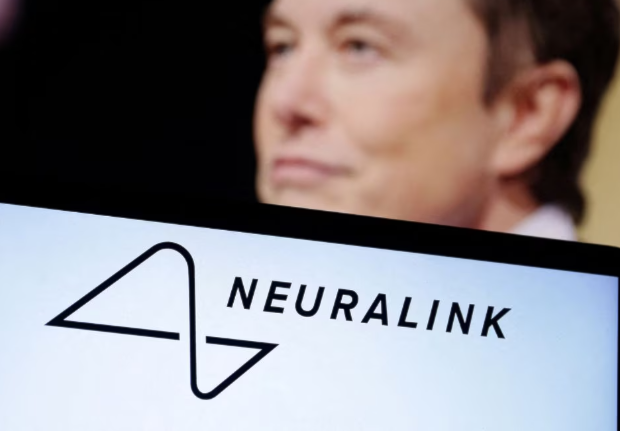Musk's Neuralink approved for in-human study
Musk has previously expressed much confidence in the implants - going so far as to say he would implant them in his own children.
-

Neuralink logo and Elon Musk are seen on December 19, 2022. (Reuters)
Elon Musk's brain-implant startup, Neuralink, announced on Thursday that it received clearance from the US Food and Drug Administration (FDA) to begin its first in-vivo clinical research, a vital step following previous setbacks.
Since 2019, Musk has forecast at least four times that Neuralink would begin human trials for a brain implant to cure serious ailments, including paralysis and blindness.
While it was established in 2016, it only sought FDA approval in early 2022 - and the government denied the application, according to seven current and former workers in March.
According to the workers, the FDA had raised various problems about Neuralink that needed to be rectified before human trials could be approved. The gadget's lithium battery, the potential of the implant's wires moving within the brain, and the difficulties of properly retrieving the device without injuring brain tissue were all major problems.
The FDA's clearance came as US legislators urge regulators to look into whether the composition of a panel monitoring animal testing at Neuralink led to botched and hurried trials.
Federal investigations were launched into Neuralink.
We are excited to share that we have received the FDA’s approval to launch our first-in-human clinical study!
— Neuralink (@neuralink) May 25, 2023
This is the result of incredible work by the Neuralink team in close collaboration with the FDA and represents an important first step that will one day allow our…
Last year, the USDA's inspector general began examining suspected breaches of the Animal Welfare Act, which controls how researchers care for and test certain types of animals, at the request of a federal prosecutor.
The investigation also looked at the USDA's monitoring of Neuralink.
Musk has been very ambitious about Neuralink in the previous years, stating last year that he had so much confidence in the device he would implant it in his own children.
The Tesla CEO hopes to treat a variety of illnesses through the technology, including obesity, autism, depression, and schizophrenia, as well as enable online browsing and telepathy.

 2 Min Read
2 Min Read








